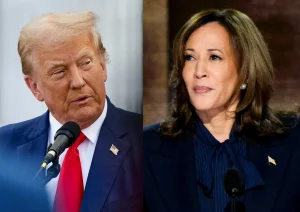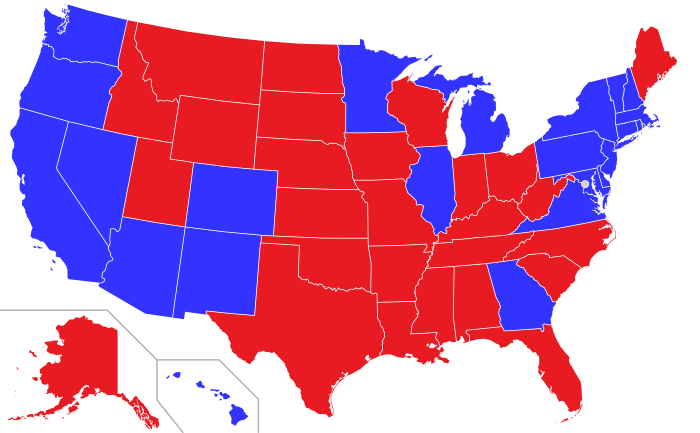With the 2024 US Presidential election rapidly approaching, the nation finds itself embroiled in a fierce political battle. Republican nominee Donald Trump and Democratic contender Kamala Harris are locked in a heated race for the White House, while their respective parties engage in a fierce struggle for control of Congress. Both Democrats and Republicans are vying for seats in the House and Senate, creating a landscape of high stakes and intense competition.
According to The Guardian, Republicans face an uphill battle in their quest for Senate control. Contests in Arizona, Nevada, North Carolina, and Pennsylvania are particularly tight, with polls showing a razor-thin margin. The rising cost of living and the increasingly polarized political climate present significant challenges in attracting voters.
Trump’s influence, once a dominant force in Republican victories, may not hold the same sway this time around. While he remains a popular figure among Republican voters, his presence also carries risks. His divisive rhetoric and policies could alienate swing voters, potentially jeopardizing the party’s chances, notes the newspaper.

“It looks like both chambers of Congress will flip, with Democrats taking the House of Representatives and Republicans taking the Senate,” Dr. Todd Belt, Professor and Political Management Program Director at the Graduate School of Political Management at George Washington University, told The Wyoming Star.
He also addressed the recent failed assassination attempts on Trump, ruling out possibility of a major conspiracy, citing a significant increase in threats against members of Congress.
“This is becoming more prevalent. Threats on members of Congress have increased by a factor of eight since 2016,” he explained.
This tense domestic political climate is further amplified by escalating conflicts in the Middle East. The devastating war in Gaza has spread to Lebanon, with Iran also engaging into the conflict. The situation worsens with each passing day, with intense exchanges of fire resulting in civilian casualties, displacement, and widespread violence. While the Biden administration maintains its support for Israel, it has not endorsed any strikes on Iranian nuclear facilities.
The volatile situation in the Middle East adds another layer of uncertainty to the upcoming election, creating a backdrop of heated rhetoric and heightened anxiety.
Another pressing international issue confronting the next US administration is the ongoing conflict in Ukraine. The two parties are divided over the level of support for Kyiv, which has been pushing for the approval of long-range missiles capable of striking inside Russia. Moscow has issued a stern warning that such action would be considered a direct threat to Russia from NATO and could escalate the conflict.
Dr. Belt outlined the distinct approaches of Trump and Harris on these global challenges: while the former president has avoided direct statements on the Middle East conflict, stating “it [the war] never would have happened” if he was in the White House at that time, the Vice President has been “playing it safe.”

“Harris has tried to not alienate those in the Democratic party who think Israel has gone too far while at the same time supporting Israel’s right to defend itself, ” he explained.
Similarly, the candidates differ on Ukraine, Dr. Belt added. Trump claims he would “get [Ukraine’s leader Volodymyr] Zelensky and [Russian President Vladimir] Putin in a room and make a deal,” and Harris is likely to continue Biden’s policy of providing financial support to Kyiv’s war effort. This strategy, however, faces opposition from some in Congress and among the general public in the USA.
The outcome of the November election will reverberate far beyond the borders of the United States. As the world grapples with a volatile geopolitical landscape, the choices made by the next US administration will have a profound impact on global alliances, international trade, and the delicate balance of power.
But the impact extends beyond the White House. The fierce battle for control of Congress, with Democrats and Republicans locked in a tight race for seats in the House and Senate, will also have far-reaching implications.









